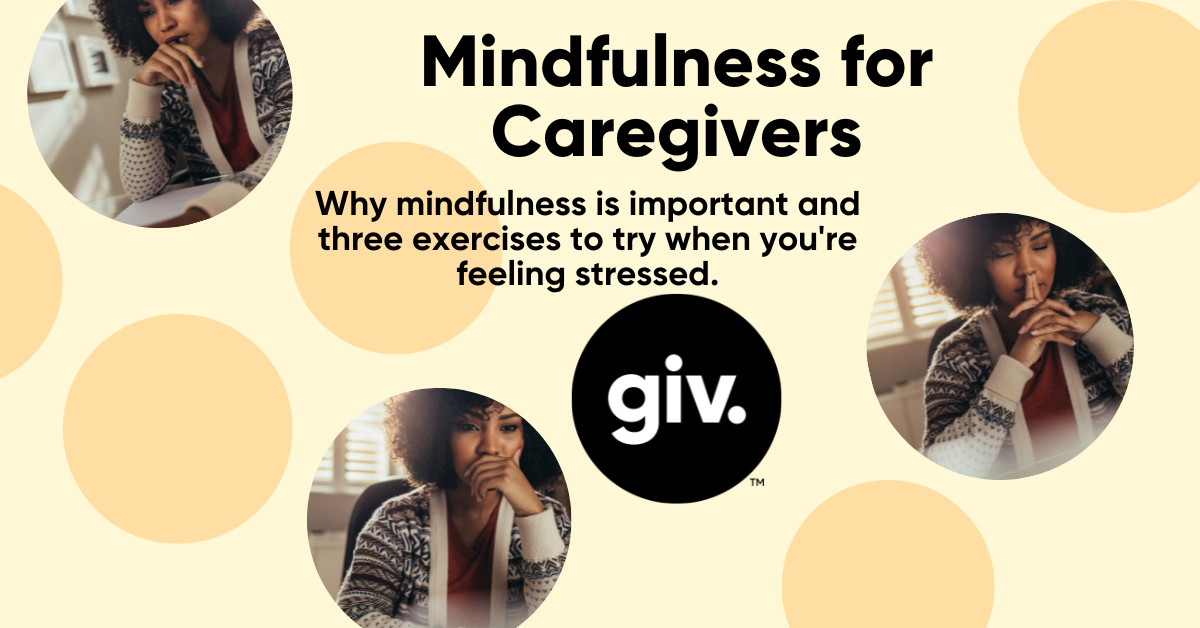In the realm of caregiving, where the responsibilities can feel ceaseless and the challenges overwhelming, the concept of mindfulness for caregivers emerges as a beacon of hope. Amidst the demands of tending to the needs of others, caregivers often neglect their own well-being. However, integrating mindfulness practices into their routine can cultivate resilience, alleviate stress, and foster a greater sense of balance. Let’s explore how mindfulness can serve as a lifeline for caregivers, offering solace amidst the storm of responsibilities.
Mindfulness for Caregivers
Mindfulness for caregivers encompasses a spectrum of practices aimed at anchoring one’s awareness to the present moment. It involves intentionally directing attention to the sensations, thoughts, and emotions arising in the here and now, without judgment. For caregivers, whose minds are often preoccupied with the needs of their loved ones, cultivating mindfulness can provide a sanctuary of tranquility amidst the chaos.
Practicing mindfulness allows caregivers to develop a deeper understanding of their own mental and emotional landscape. By observing their thoughts and feelings with curiosity and compassion, caregivers can cultivate greater self-awareness and emotional resilience. This heightened awareness enables them to respond to the challenges of caregiving with clarity and equanimity, rather than reactively succumbing to stress and overwhelm.
Cultivating Calm Amidst Caregiver Stress
Caregiver stress is a pervasive challenge faced by those entrusted with the care of others. The relentless demands of caregiving, coupled with the emotional toll of witnessing a loved one’s struggles, can exact a heavy toll on mental health. Research shows that caregivers are at an increased risk of experiencing anxiety, depression, and burnout due to the chronic stress associated with their role.
Mindfulness offers a potent antidote to caregiver stress, providing a sanctuary of serenity amidst the tumult of responsibilities. By anchoring their awareness to the present moment, caregivers can alleviate the burden of worrying about the future or ruminating on the past. Simply taking a few moments to pause, breathe deeply, and tune into the sensations of the body can help caregivers regain a sense of calm and equilibrium.

Prioritizing Mental Health Through Mindfulness
In the whirlwind of caregiving, mental health often takes a backseat to the needs of others. Yet, neglecting one’s own well-being can have profound consequences for both the caregiver and the care recipient. Practicing mindfulness allows caregivers to prioritize their mental health by cultivating a greater sense of self-care and emotional well-being.
Mindfulness equips caregivers with invaluable tools for managing the myriad challenges they encounter on a daily basis. By observing their thoughts and emotions without judgment, caregivers can develop greater resilience in the face of adversity. This enhanced emotional resilience enables caregivers to navigate stressful situations with grace and composure, reducing the risk of burnout and preserving their mental health.
Practicing Mindfulness: Simple Strategies for Caregivers
Incorporating mindfulness into daily life need not be a daunting task. Even just a few minutes of practice each day can yield profound benefits for caregivers. Here are some simple mindfulness strategies that caregivers can integrate into their routine:
Mindful Breathing: Take a few moments to focus on the sensation of your breath entering and leaving your body. Notice the rise and fall of your chest or the feeling of air passing through your nostrils. This simple practice can help anchor your awareness to the present moment and induce a sense of calm.
Body Scan Meditation: Set aside a few minutes to systematically scan your body from head to toe, paying attention to any areas of tension or discomfort. With each breath, allow yourself to release any tension you encounter, inviting a sense of relaxation and ease into your body.
Mindful Walking: Take a leisurely stroll outdoors and pay attention to the sensations of each step. Notice the feeling of your feet making contact with the ground, the rhythm of your breath, and the sights and sounds around you. Walking mindfully can serve as a rejuvenating break from the demands of caregiving.
Mindful Eating: When enjoying a meal or snack, take the time to savor each bite mindfully. Notice the flavors, textures, and aromas of the food, and pay attention to the sensations of hunger and satiety in your body. Eating mindfully can enhance your enjoyment of food and promote greater awareness of your body’s needs.
Gratitude Practice: Cultivate a sense of gratitude by reflecting on the things you are thankful for each day. Take a few moments to acknowledge the blessings in your life, whether it’s a supportive friend, a moment of respite, or a simple pleasure. Practicing gratitude can shift your perspective and foster a greater sense of contentment amidst the challenges of caregiving.

Navigating Caregiving Challenges with Mindfulness
Caregiving is inherently fraught with challenges, from navigating complex medical decisions to managing the emotional ups and downs of caring for a loved one. Mindfulness equips caregivers with invaluable tools for facing these challenges with grace and resilience.
By cultivating present moment awareness, caregivers can develop a greater capacity to tolerate uncertainty and adversity. Rather than becoming overwhelmed by the enormity of their responsibilities, caregivers can focus on taking each moment as it comes, one step at a time. This mindful approach enables caregivers to respond to challenges with clarity and intention, rather than reacting impulsively out of fear or frustration.
Supporting the Well-Being of Family Caregivers
Family caregivers play a vital role in supporting the health and well-being of their loved ones. However, this role can also exact a toll on the caregiver’s own well-being if not adequately supported. It’s essential for family caregivers to prioritize their own mental and emotional health in order to sustainably care for others.
Mindfulness-based approaches offer a promising avenue for supporting the well-being of family caregivers. By providing caregivers with tools and techniques for managing stress, cultivating resilience, and fostering self-care, mindfulness can empower caregivers to thrive amidst the challenges of caregiving.

The Power of Mindfulness: A Path to Resilience
In conclusion, mindfulness holds transformative potential for caregivers, offering a pathway to resilience, well-being, and peace amidst the demands of caregiving. By practicing mindfulness, caregivers can cultivate greater self-awareness, emotional resilience, and presence in their daily lives. Whether through simple breathing exercises, mindful movement practices, or gratitude reflections, caregivers can harness the power of mindfulness to navigate the challenges of caregiving with grace and equanimity. As research continues to elucidate the myriad benefits of mindfulness for caregivers, it is increasingly clear that this ancient practice holds profound implications for the health and well-being of caregivers everywhere.






